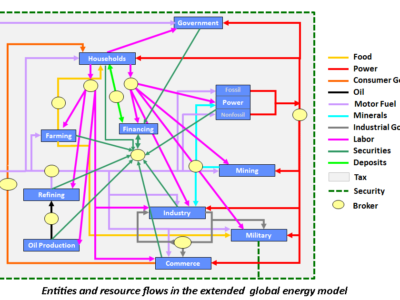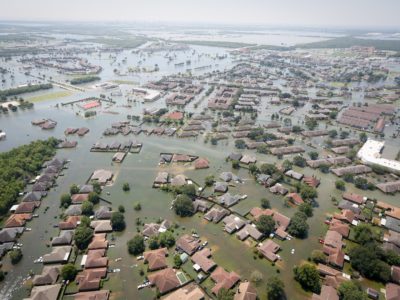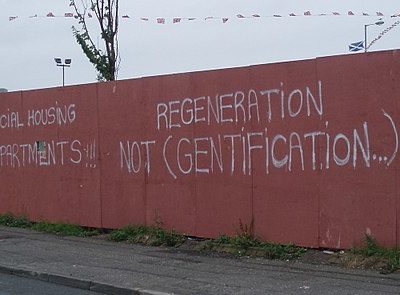Federal Climate Policy
Do Impossible Regulatory Deadlines Cause Faster Progress?
A: Maybe, but only in a roundabout way. (And at a cost.)
Just about nobody who’s knowledgeable in the field thinks the U.S. electric grid can be made carbon free in ten years. Having spent the past two years lambasting the Trump Administration for ignoring the experts, I’m loathe to disagree with the expert opinion on this one. But even if the ten-year deadline set by supporters …
Continue reading “Do Impossible Regulatory Deadlines Cause Faster Progress?”
CONTINUE READINGUCLA Law’s Ann Carlson Interviewed on CBS’s 60 Minutes Discussing Juliana v. U.S., Landmark Climate Change Lawsuit
Segment Provides Legal Context for Groundbreaking Children’s Climate Case
Our colleague Ann Carlson appeared on 60 Minutes this past Sunday for a lengthy on-camera interview with Steve Kroft, discussing the Juliana v. U.S. lawsuit filed by Our Children’s Trust. Begun in 2015, the lawsuit has survived several appeals so far, and is headed to oral arguments in June at the U.S. Court of Appeals for the Ninth Circuit in Portland, Oregon. …
CONTINUE READINGThe Potential Benefits of Declaring a Climate Emergency
The idea deserves serious consideration. There actually could be some very tangible benefits.
I have a confession: When I started thinking about the possibility of a climate emergency declaration, it was mostly as a counterpoint to Trump’s possible (now a done deal) declaration of an immigration emergency. As I’ve thought about it, however, it seems to me that there are enough potential benefits to make the idea worth …
Continue reading “The Potential Benefits of Declaring a Climate Emergency”
CONTINUE READINGThe GOP’s Climate Views Are Thawing
Significant parts of the GOP seem to be leaving Trump behind on the climate issue.
There were three interesting stories about climate politics in the papers today: one about Trump, one about other Republicans, and one about both. What these stories tell us is that part of the GOP is coming to terms with reality; Trump not surprisingly is not. First, as to Trump. As you may have noticed, Trump …
Continue reading “The GOP’s Climate Views Are Thawing”
CONTINUE READINGScoping Out the Green New Deal
How would we go about decarbonizing the most needy U.S. states?
Progressives are calling for a Green New Deal. The details are still very fuzzy, despite the House resolution introduced by Markey and Ocasio-Cortez. That proposal as a ten-year timetable to eliminate carbon, which is highly unrealistic. Nevertheless, it’s worth thinking about what an all-out effort to decarbonizing the economy would look like. The Green New …
Continue reading “Scoping Out the Green New Deal”
CONTINUE READINGBottoms-Up! An Emerging New Governance System (4)
We can think of the energy system as a kind of ecosystem, and renewables as an invasive species.
As I’ve discussed the earlier three posts in this series, it is possible to imagine a cycle of positive feedback, in which the history of past climate efforts increases the likelihood of future ones and even draws more jurisdictions into the effort. But it is also possible to imagine that bottom-up efforts might not catch …
Continue reading “Bottoms-Up! An Emerging New Governance System (4)”
CONTINUE READINGBottoms-Up! An Emerging New Governance System (3)
Bottom-up strategies can ultimately pave the road for stronger international agreement.
It is difficult to measure the extent of positive feedback between climate initiatives. But it seems evident that such feedback does exist. A major climate initiative in one jurisdiction seems to encourage climate action elsewhere. This makes climate action a more appealing prospect for any individual jurisdiction, because by acting it can increase climate actions …
Continue reading “Bottoms-Up! An Emerging New Governance System (3)”
CONTINUE READINGI’ll Just Be Over Here In My Fallout Shelter
The Green New Deal may be ambitious, but it’s not alarmist.
It would be impossible to react to every piece of misinformation or poor reporting about climate change—let alone every misguided opinion editorial—that lives online today, but Bret Stephens’ February 15 piece in the New York Times strikes me as warranting a response. That’s not because of the clickbait title (“Is Nancy Pelosi A Climate Skeptic?” …
Continue reading “I’ll Just Be Over Here In My Fallout Shelter”
CONTINUE READINGWhat I Wish The Green New Deal Hadn’t Left Out
Greening our infrastructure is part of the solution, but so’s city planning.
While there’s certainly been no shortage of criticism of last week’s Green New Deal resolution, the common line hasn’t been that the resolution doesn’t try to cover enough ground. On the contrary, it’s been called an everything-but-the-carbon-sink approach; even Trevor Noah devoted a few minutes of the Daily Show to gaping at the proposal’s efforts …
Continue reading “What I Wish The Green New Deal Hadn’t Left Out”
CONTINUE READINGIs the Green New Deal’s Ambition Smart Policy?
Some Lessons from Environmental History
At the the heart of the Green New Deal — which demands slashing U.S. carbon emissions by 2030 by shifting to 100 percent clean energy — is a major conundrum. Even the most enthusiastic proponents of ambitious climate policy don’t believe the goals are achievable, technologically let alone politically. Stanford Professor Marc Z. Jacobsen, for …
Continue reading “Is the Green New Deal’s Ambition Smart Policy?”
CONTINUE READING











